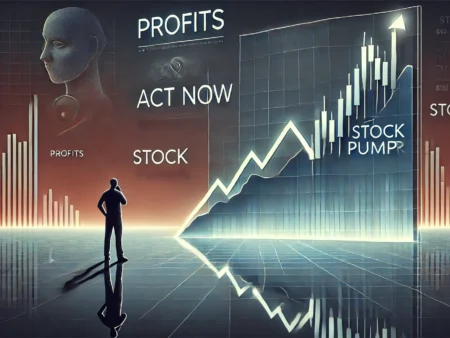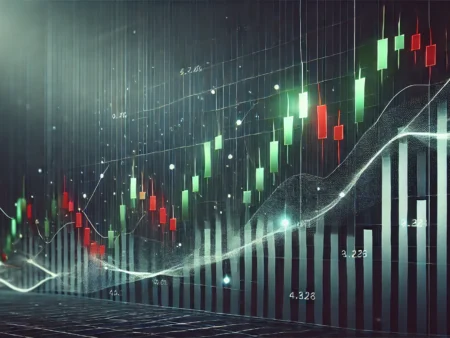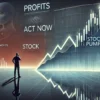Trader Psychology: Understanding and Overcoming the “Herd Mentality” in Trading
In the fast-paced world of financial markets, emotions often run high, and traders are regularly faced with decisions that can either lead to success or costly mistakes. One of the most common psychological traps that traders fall into is the herd mentality, also known as “following the herd.” This phenomenon occurs when traders base their decisions on the actions and behaviors of others, rather than their own independent analysis.
While following the crowd can sometimes lead to profits, it often results in bad decisions, missed opportunities, and unnecessary risks. In this article, we will dive into the psychology behind herd mentality in trading, provide real-world examples, and share actionable tips on how traders can avoid this common pitfall and develop a more disciplined approach to their trading.
What Is the “Herd Mentality” in Trading?
Herd mentality refers to the tendency of individuals to follow the actions of a larger group, often without fully analyzing or understanding the reasons behind those actions. In trading, this occurs when traders make decisions—buying or selling—based on what others are doing, rather than conducting their own research or sticking to their trading strategy.
This behavior is often driven by the fear of missing out on profits (FOMO) or the anxiety of going against the crowd. Traders may feel that if “everyone” is doing something, it must be the correct decision. However, just because a large group of traders is making a particular move doesn’t necessarily mean it’s the right choice. Markets are complex, and following the herd can lead to poor timing, overreaction, or even significant losses.
Why Do Traders Follow the Herd?
There are several psychological factors at play when traders fall into herd mentality:
1. Fear of Missing Out (FOMO)
FOMO is one of the most powerful emotions that drive herd mentality. When traders see others profiting from a particular stock or asset, they may feel pressured to jump in, even if they haven’t done proper research or if it’s against their better judgment. The fear of missing out on potential gains often causes traders to abandon their trading plans and take impulsive actions.
2. Safety in Numbers
Humans naturally seek safety in numbers. In the context of trading, it can feel safer to follow the crowd than to go against it. Traders believe that if everyone else is making the same decision, it reduces the risk of being wrong. This creates a false sense of security, as the crowd is not always right, especially in volatile or speculative markets.
3. Cognitive Bias
Our brains are wired to conform to social norms and behaviors. This bias, known as social proof, suggests that people are more likely to engage in a behavior if they see others doing the same. In trading, this cognitive bias can lead individuals to follow popular trades, even when they contradict their own analysis.
4. Emotional Contagion
Emotions in financial markets are contagious. When a large group of traders is reacting to market events, the emotions—whether fear during a sell-off or excitement during a rally—can spread like wildfire. Traders who are susceptible to emotional contagion may be influenced by the collective mood and make irrational decisions.
Real-World Examples of Herd Mentality in Trading
Herd mentality is not a new phenomenon, and it has been responsible for both market bubbles and crashes throughout history. Here are some notable examples:
1. Dot-com Bubble (1995–2000)
During the late 1990s, the internet and technology sectors saw a massive boom, with investors pouring money into dot-com companies, regardless of their financial health or business models. The herd mentality took over, as traders believed that these companies would only continue to rise in value. As more people jumped on the bandwagon, prices became inflated beyond any rational valuation.
When the bubble finally burst in 2000, millions of investors were caught off guard, and trillions of dollars in market value were wiped out. Many of those who followed the herd without conducting proper research ended up suffering huge losses.
2. The Bitcoin Craze (2017)
The cryptocurrency market saw a dramatic rise in 2017, with Bitcoin leading the charge. As the price of Bitcoin soared to nearly $20,000, FOMO set in, and many traders who had little to no knowledge of cryptocurrency jumped into the market purely because they saw others doing the same. The price was driven by a speculative frenzy fueled by herd behavior.
However, the rally was unsustainable, and by early 2018, Bitcoin had crashed, wiping out a large portion of the gains and leaving many latecomers with significant losses. This serves as a prime example of how following the herd can lead to costly consequences.
3. GameStop Short Squeeze (2021)
In early 2021, the stock of GameStop (GME) skyrocketed due to a short squeeze orchestrated by retail traders on social media platforms like Reddit. Thousands of individual investors bought up shares, sending the price of the stock soaring in a matter of days. As the stock climbed higher, more traders piled in, driven by FOMO and the belief that the price would continue to rise.
While some early traders made substantial profits, many who followed the crowd and bought near the peak of the frenzy were left with large losses when the price eventually collapsed. The GameStop event is a prime example of how herd mentality, fueled by social media, can drive market chaos.
How to Deal with Herd Mentality in Trading: Tips and Tricks
Herd mentality can be dangerous for traders, but it’s entirely avoidable with the right mindset and strategy. Here are some tips and tricks to help you recognize and avoid following the herd:
1. Stick to Your Trading Plan
One of the most effective ways to avoid falling into the herd mentality trap is to have a solid trading plan in place. This plan should include your entry and exit points, risk tolerance, and profit targets. Once you have a strategy, stick to it, no matter what the crowd is doing. A well-thought-out trading plan is designed to remove emotions from the decision-making process, helping you stay focused on your objectives rather than the actions of others.
2. Conduct Independent Research
Always do your own research before entering a trade. Just because a stock or asset is popular doesn’t mean it’s a good investment. Rely on fundamental analysis (for long-term trades) and technical analysis (for short-term trades) to assess the potential risks and rewards of a position. Make informed decisions based on data, not market hype or social media speculation.
3. Be Wary of FOMO
FOMO is one of the biggest drivers of herd mentality, but it can lead to poor decision-making. When you feel the urge to join a crowded trade, take a step back and ask yourself whether you’re acting based on emotion or logic. Avoid chasing after rapidly rising assets just because others are. If you missed an opportunity, don’t panic—there will always be new opportunities.
4. Stay Disciplined During Market Hype
During periods of market euphoria or panic, it’s easy to get swept up in the excitement or fear that drives the herd. However, it’s important to remain disciplined. Monitor your trades with a clear head, and resist the urge to make hasty decisions based on what others are doing. Stick to your risk management strategy and avoid making trades that are not part of your plan.
5. Limit Exposure to Market Noise
In today’s world, it’s easy to be influenced by social media, news outlets, and online forums. While these sources can provide valuable insights, they can also amplify market noise and drive herd behavior. Consider limiting your exposure to market news during volatile times and focus on reliable sources of information. Stay clear of speculative chatter, which often lacks solid analysis or reasoning.
6. Use Contrarian Thinking
While herd mentality can lead to overbought or oversold conditions, traders who adopt a contrarian approach often find opportunities by going against the crowd. Contrarian traders look for mispriced assets or situations where market sentiment is overly optimistic or pessimistic. This doesn’t mean you should automatically do the opposite of the crowd, but you should remain skeptical of extreme market behavior and make decisions based on your own research.
7. Learn to Be Patient
Markets move in cycles, and there will always be periods of volatility and excitement. Instead of jumping in and out of trades based on short-term trends, develop the patience to wait for the right opportunities. By focusing on the long-term picture and avoiding emotional reactions, you can make more rational and strategic decisions.
Conclusion
“Herd mentality” in trading is a psychological trap that can lead traders into risky and irrational decisions, driven by the fear of missing out or the false security of following the crowd. While it may seem easier to go along with the majority, this strategy can often lead to significant losses when market conditions change or trends reverse.
By developing a clear trading plan, conducting independent research, staying disciplined, and keeping emotions in check, traders can avoid the pitfalls of herd behavior and make more informed decisions. Remember that successful trading requires patience, strategy, and a willingness to go against the crowd when necessary.
Stay focused, do your homework, and avoid the temptation of herd mentality to position yourself for long-term success in the financial markets.












